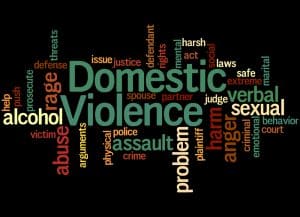Eligibility of a Final Restraining Attorney Monmouth and Ocean County NJ
Read on to learn more about how a New Jersey appellate court recently affirmed who can be granted a Final Restraining Order under domestic violence law.

Who is protected under domestic violence law?
The New Jersey Prevention of Domestic Violence Act determines that a person can be considered a victim of domestic violence based on their relationship with the offender. Those who are protected by the Prevention of Domestic Violence Act are over the age of 18 or are an emancipated minor, and they have been harmed in one of the 19 forms of domestic violence (outlined below) by
- a spouse,
- a former spouse,
- a present or former household member,
- someone with whom they share a child or are pregnant, or
- someone with whom they are “dating,” according to the legal definition of dating outlined in the courts.
Recently, a New Jersey appellate court affirmed the above, particularly in the case of “householder.” The appellate court reversed the issuance of a FRO for harassment under domestic violence law because the plaintiff and the defendant had never lived in the same home at the same time, and therefore did not meet the legal requirements outlined in the Prevention Against Domestic Violence Act.
What is legally considered domestic violence under New Jersey law?
The Act names the following as forms of domestic violence that are punishable as such by law:
- Assault – This is defined as making unwanted physical contact with a person, whether or not it causes pain; as well as the threat to touch someone without their permission or do them harm
- Sexual assault – Sexual assault involves sexual harassment such as abusive or unwanted comments, insistence, or threats.
- Criminal sexual contact – This is forcing a person to have sexual contact.
- Criminal restraint – Criminal restraint is the forceful withholding of a person’s physical being against their will. It may go hand-in-hand with a criminal sexual contact charge.
- Harassment – Harassment is having continued communication with someone when they have asked for it to stop; it intends to force some response or action or cause stress.
- Cyber harassment – This is harassment that occurs online and may or may not include physical follow-up or public shaming, or harm. It is intended to or does cause emotional harm.
- Stalking – Stalking is following someone against their will and maybe in person or through technology. It is different from harassment because it is the presence more than the action that is bothersome and threatening.
- Threats – A threat is a verbal expression that one will harm another. This does not need to be followed up to be considered an act of domestic violence under the law.
- Robbery – This is removing or taking someone’s property without having their permission.
- Burglary – Burglary is entering into someone’s private property without their permission, whether or not something is removed.
- False Imprisonment – False imprisonment is detaining someone, either physically, financially, or psychologically.
- Kidnapping – Kidnapping is the physical removal of someone from their home environment without their
permission. If it is someone who qualifies as a victim of domestic violence, this carries a domestic violence charge; yet it also carries its own charge.
- Criminal mischief – Criminal mischief is damaging or vandalizing someone’s property.
- Lewdness – Showing your private parts to someone without their permission carries a lewdness charge.
- Contempt of a restraining order – Going against the terms of a Temporary Restraining Order (TRO) or a Final Restraining Order (FRO) can result in further domestic violence charges.
- Crimes involving risk – Those protected by the New Jersey Domestic Violence Prevention Act of 1991 are protected from any act that could threaten their physical safety.
- Homicide – In addition to carrying its own charge, someone who kills a spouse, ex-spouse, the parent of their child, or a householder is subject to additional charges under domestic violence law.
Contact our skilled Domestic Violence Attorney in Monmouth and Ocean County Today
At Bronzino Law Firm, our experienced team of domestic violence lawyers supports clients across New Jersey, including Ocean and Monmouth counties, in all matters regarding Final Restraining Orders and other domestic violence case issues.
To schedule a consultation with a team member today to discuss your case, 7328123102 today for a free and confidential consultation to discuss your individual needs and concerns.


 permission. If it is someone who qualifies as a victim of domestic violence, this carries a domestic violence charge; yet it also carries its own charge.
permission. If it is someone who qualifies as a victim of domestic violence, this carries a domestic violence charge; yet it also carries its own charge.




